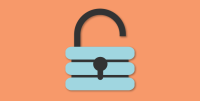Open Educational Resources (OER): Resource Roundup
An educators’ guide to open educational resources with information about online repositories, curriculum-sharing websites, and sources for lesson plans and activities.
Your content has been saved!
Go to My Saved Content.OER, a part of the global open content movement, are shared teaching, learning, and research resources available under legally recognized open licenses -- free for people to reuse, revise, remix, and redistribute. Why are OER important? High-quality OER can save teachers significant time and effort on resource development and advance student learning inside and outside the classroom. Further, open sharing of resources has the potential to fuel collaboration, encourage the improvement of available materials, and aid in the dissemination of best practices. For more about the potential of OER, check out "5-Minute Film Festival: Why Open Education Matters."
Getting Started
Sharing resources: The nonprofit Creative Commons offers free, easy-to-use copyright licenses that allow you to specify which rights to your works you want to reserve and which rights you'd like to waive. Read more at "About Creative Commons" and "About the Licenses." If you are a state or school leader, you might want to check out "Open Educational Resources and Collaborative Content Development: A Practical Guide for State and School Leaders," a downloadable report from the International Association for K-12 Online Learning.
Quality considerations: With all the promise of OER, some challenges remain. One of these is assuring the quality of resources. Achieve's Open Educational Resources includes a set of downloadable rubrics that can help districts, teachers, and other users evaluate OER for quality and determine the level of alignment to the Common Core State Standards (CCSS). Additional rubrics for evaluating OER quality have been collected as part of the Washington OER Project. It's worth noting that many of the larger repositories for OER will include copyright information, and their materials will typically adhere to some established criteria.
How to Find OER
Open Lesson Plans, Courses, and Activities
Take a look at some other Edutopia-curated lists, many of which include open materials, by Davis, VideoAmy, and others:
English Language Arts
Mathematics
Science and the Environment
Social Studies
The Arts
Other Events and Themes
Open Alternatives to Textbooks
Additional Resources on the Web
Open Repositories, Collections, and Tools
Open Books and Textbooks
Open Courses and Learning Modules
Blogs, Articles and Other Resources
